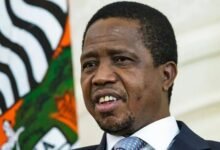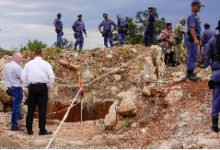Preacher sends gunmen into Burkina Faso schools

When an Islamist preacher took up the fight in Burkina Faso’s northern borderlands almost a decade ago, his only weapon was a radio station. The words he spoke kindled the anger of a frustrated population, and helped turn their homes into a breeding ground for jihad.
Residents of this parched region in the Sahel – a vast band of thorny scrub beneath the Sahara Desert – remember applauding Ibrahim “Malam” Dicko as he denounced his country’s Western-backed government and racketeering police over the airwaves.
“We cheered,” said Adama Kone, a 32-year-old teacher from the town of Djibo near the frontier with Mali, who was one of those thrilled by Dicko’s words.
“He understood our anger. He gave the Fulani youth a new confidence.”
Mostly herders, young men like Kone from the Fulani people were feeling hemmed in by more prosperous farmers, whom they felt the government in Ouagadougou favoured.
The preacher successfully exploited their conflicts over dwindling land and water resources, and the frustrations of people angered by corrupt and ineffective government, to launch the country’s first indigenous jihad movement. That cleared a path for groups affiliated with al Qaeda and Islamic State.
Since Dicko’s first broadcasts, Burkina Faso has become the focus of a determined jihad campaign by three of West Africa’s most dangerous armed groups who have carved out influence in nearly a third of the country, while much of the world was focused on the crisis in neighbouring Mali.
Militant Islamist fighters close schools, gun down Christians in their places of worship and booby-trap corpses to blow up first responders. At least 39 people died last week in an ambush on a convoy ferrying workers from a Canadian-owned mine in the country.
There has been no claim for that ambush, but the modus operandi – a bomb attack on military escorts followed by gunmen unleashing bullets – was characteristic of Islamist groups.
Since 2016, the violence has killed more than 1,000 people and displaced nearly 500,000 – most of them this year.
In 2019, at least 755 people had died through October in violence involving jihadist groups across Burkina Faso, according to Reuters’ analysis of political violence events recorded by the Armed Conflict Location and Event Data Project, an NGO. Actual numbers are likely higher – researchers aren’t always able to identify who is involved in the violence. -Reuters







